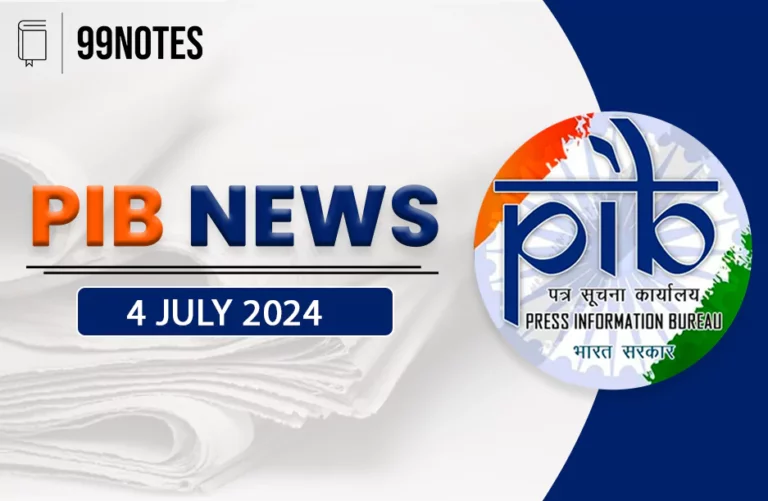1 Jan 2024 : PIB
1. Government of India constitutes Sixteenth Finance Commission with Dr. Arvind Panagariya as its Chairman.
| Topic: GS2 – Indian Polity – Constitutional Bodies
Crucial for UPSC as it involves constitutional finance matters, tax distribution, and grants, assessing economic policies and disaster management. |
| Context: |
|
More information on this news:
- The Government of India, approved by the President, has established the Sixteenth Finance Commission in accordance with Article 280(1) of the Constitution.
- Arvind Panagariya, former Vice-Chairman of NITI Aayog and Professor at Columbia University, has been appointed as the Chairman of the Sixteenth Finance Commission.
- Shri Ritvik Ranjanam Pandey has been designated as the Secretary to the Commission.
- The terms of reference for the Sixteenth Finance Commission, as detailed in the notification, include
- Making recommendations on the distribution of net proceeds of taxes between the Union and States
- Allocation of shares among the States
- Principles governing grants-in-aid to States from the Consolidated Fund of India
- Measures to augment the Consolidated Fund of a State for local bodies.
- The Commission is also tasked with reviewing the financing arrangements for Disaster Management initiatives under the Disaster Management Act, 2005, and providing appropriate recommendations.
- The report of the Sixteenth Finance Commission is expected to be available by October 31, 2025, covering a five-year period starting from April 1, 2026.
| Finance Commission |
|
| PYQ: How have the recommendations of the 14th Finance Commission of India enabled the States to improve their fiscal position?(UPSC CSE (M) GS-2 2021) (150 words/10m) |
| Practice Question: Critically evaluate the recent Finance Commission’s recommendations. Do they adequately address the evolving challenges of fiscal federalism in the post-GST era, particularly with regards to vertical devolution and inter-state equity? (250 words/15 m) |
2. Ministry of Cooperation: Year End Review 2023
| Topic: GS2 – Governance – Government Policies – Interventions for development in various sectors
Crucial for UPSC: Focus on India’s cooperative sector reforms, reflecting economic development, rural empowerment, and diverse governance policies. |
| Context: |
|
Establishment of Ministry of Cooperation: The Ministry of Cooperation was established on July 6, 2021, under the guidance of Prime Minister, with a vision of “Prosperity through Cooperation.”
Economic Strengthening of Primary Co-operative Societies (PACS):
- Introduction of Model Bye-Laws for PACS: Multipurpose PACS empowered through model bye-laws, enhancing economic viability and expanding into sectors like dairy, fisheries, storage, etc.
- Strengthening PACS through Computerization: Computerization of PACS/LAMPS to enhance efficiency, linking 62,318 functional PACS/LAMPS with NABARD.
- Establishment of Multipurpose PACS/Dairy/Fisheries Cooperative Societies: Scheme approved to set up new cooperative societies in Panchayats/Villages for economic development.
World’s Largest Decentralized Grain Storage Program:
- Approved by the Cabinet on May 31, 2023, to create agricultural infrastructure at PACS level for food security and reduced wastage.
PACS as Common Service Centres (CSCs):
- MoU signed on February 2, 2023, for providing CSC services through PACS, enabling access to over 300 e-services.
Formation of New Farmer Producer Organizations (FPOs) by PACS:
- Allotment of 1100 additional FPOs to NCDC to empower PACS in various economic activities related to agriculture.
PACS as Jan Aushadhi Kendra and Pradhan Mantri Kisan Samridhi Kendra (PMKSK):
- Decision to open Jan Aushadhi Kendras at identified PACS for access to generic medicines.
- Upgrading PACS functioning as fertilizer distribution centers to PMKSK, involving them in drone entrepreneurship.
Micro-ATMs and RuPay Kisan Credit Card:
- Distribution of Micro-ATMs to Dairy and Fisheries cooperative societies to provide doorstep financial services.
- Launch of RuPay-Kisan Credit Card pilot project to expand the reach and capacity of Rural Co-operative Banks.
PACS as Paani Samiti and Convergence of PM-KUSUM Scheme:
- PACS made eligible as ‘Paani Samiti’ for the operation and maintenance of piped water supply schemes.
- Discussions with the Ministry of New and Renewable Energy on leveraging PACS for decentralized solar power plants.
Conclusion:
- The Ministry of Cooperation’s multifaceted initiatives signal a transformative approach towards economic development, rural empowerment, and governance, aligning with Government’s vision for a prosperous and cooperative India.



